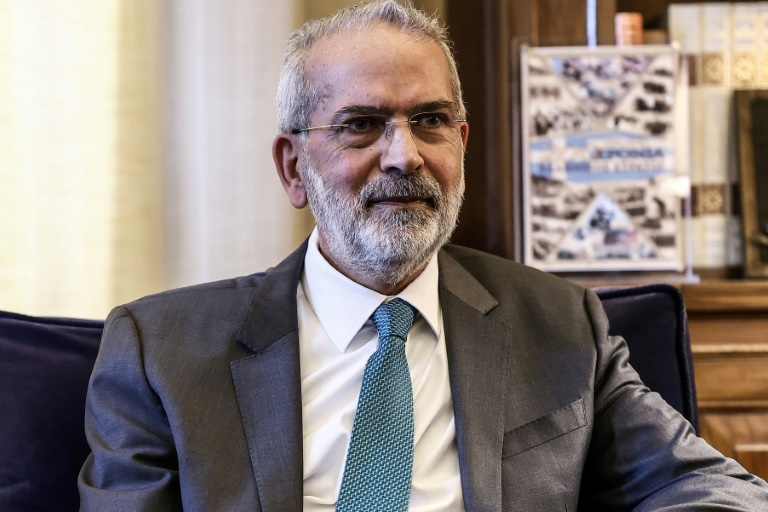AFP
A senior Greek judge, Ioannis Sarmas, was asked Wednesday to lead an interim government tasked with organising a second national election by late June, the presidency announced.
Faced with “the imposibility of forming a government” just three days after national elections “the solution, according to the Constitution is the formation of an interim government,” said President Katerina Sakellaropoulou during a meeting with Sarmas.
She referred to the fact that none of the three parties that led Sunday’s polls was willing to form a coalition government, after failing to secure a majority.
Outgoing Prime Minister Kyriakos Mitsotakis has called for a fresh election as early as June 25 after securing his party’s biggest electoral triumph in years, but five seats short of being able to produce a single-party government.
“It is a great honour, a constitutional obligation and my duty as a citizen to accept this responsibility,” said Sarmas, 66.
Born on the Greek island of Kos, Sarmas followed a career in the courts after studying law in Athens and Paris, as well as completing a doctorate.
He will serve as prime minister until a government is declared in the second election.
Sunday’s polls saw Mitsotakis’s conservative New Democracy party secured a 20-point lead over its nearest contender, Syriza, led by leftist Alexis Tsipras, at national elections on Sunday.
It was the Greek conservatives’ best result since 2007, crediting the party with bringing economic stability back to a nation once known as an EU laggard.
Mitsotakis, 55, on Monday told Sakellaropoulou that he could not form a coalition and called for elections “possibly on June 25”.
Tsipras, whose party Syriza won 71 seats for Mitsotakis’s 146, also refused to form a coalition on Tuesday and has vowed to lead his party into the next battle.
Under a new electoral law that comes into play in the next ballot, the winner can obtain a bonus of up to 50 seats.
Based on Sunday’s showing and that calculation, New Democracy is virtually assured of a victory.
In power over the last four years, former McKinsey consultant Mitsotakis steered the country through the pandemic which devastated Greece’s vital tourism industry.
Mitsotakis’ term was blighted, however, by a wiretapping scandal as well as a train crash that killed 57 people in February.
The government initially blamed the accident — Greece’s worst-ever rail disaster — on human error, even though the country’s notoriously poor rail network has suffered from years of under-investment.
Nevertheless, neither the accident nor the wiretapping scandal appeared to have dented support for his conservatives — who scored a far bigger win than that predicted by opinion polls ahead of the vote.
In contrast, Tsipras’ Syriza finished second even in his ancestral village in Arta, northwestern Greece.
For his part, Tsipras said he takes “full responsibility” for the defeat, which he called a “painful shock”, while vowing to prevent the formation of a right-wing government in the next round.







